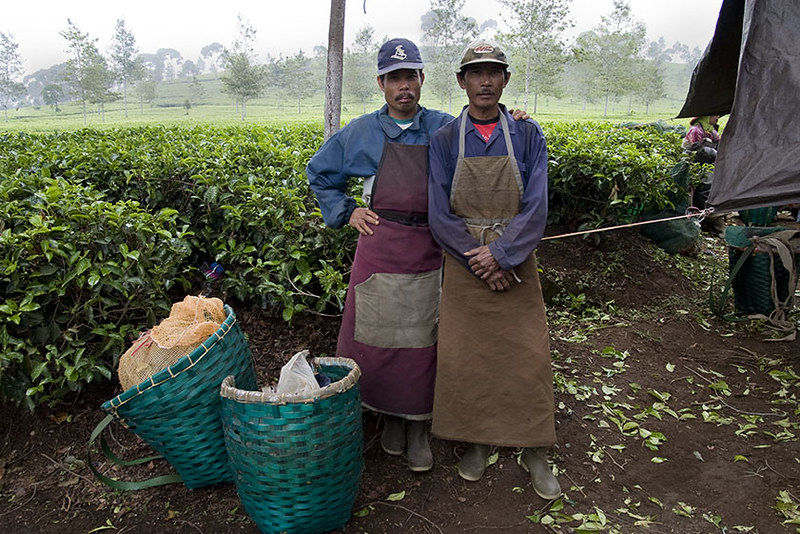The Struggles of Darjeeling Tea Workers: Why Supporting Them Matters and How Trina Kanungo is Making a Difference
Darjeeling, often referred to as the “Queen of Hills,” is not just a breathtakingly beautiful region of India, but also home to one of the world’s most cherished and sought-after tea varieties—Darjeeling tea. The rolling hills and lush green plantations that produce this iconic brew are not only an important part of India’s cultural heritage but also a significant contributor to the country’s economy. However, behind every cup of Darjeeling tea is an army of workers who face incredibly difficult conditions to pluck, process, and package the leaves. The plight of these tea plantation workers—mostly women—remains largely hidden from the world’s view, and it is crucial that we understand the challenges they face and the ways we can support them.
The Tough Life of Tea Plantation Workers
Tea plantation work in Darjeeling is grueling, physically demanding, and often done under harsh conditions. The workers typically begin their day before dawn, trekking up steep slopes to reach the plantations. The process of plucking tea leaves is not easy; the workers have to be swift and efficient, picking only the tender top leaves, known as "two leaves and a bud." This requires meticulous attention to detail, as well as speed to meet the high demand for the tea.
The terrain in Darjeeling, with its rugged hills, adds another layer of difficulty. Navigating these slopes is exhausting and perilous, especially for workers who may already be battling physical exhaustion or poor health. The days are long, and the pay is often insufficient for the hard work they put in. Workers are paid by the amount they pluck, meaning that their income can be inconsistent, leaving them vulnerable to periods of financial instability.
Moreover, many tea workers live in remote and underdeveloped areas, with limited access to healthcare, education, or proper sanitation. For women, the situation is even more dire. They often juggle the demands of tea plucking with household chores and raising children. The lack of social and economic security creates a cycle of poverty that is difficult to break, and it remains a harsh reality for many of these workers, even as the global demand for Darjeeling tea continues to grow.
The Importance of Helping and Supporting Tea Workers
Supporting tea plantation workers is not just a moral imperative; it is essential for the well-being of the community as a whole. These workers are the backbone of the Darjeeling tea industry, and yet their contributions are often underappreciated. Addressing their needs goes beyond simply offering financial aid; it’s about ensuring access to basic services like healthcare, education, and fair wages.
Improving the working conditions of tea plantation workers can lead to better productivity and quality of life. A healthier, more educated workforce is not only beneficial for the workers themselves but also for the industry as a whole. When workers are properly supported, they are more likely to remain in the industry, which in turn helps sustain the heritage of Darjeeling tea for future generations.
One of the key aspects of supporting these workers is addressing their health needs. Many of the workers are exposed to harsh working conditions, including long hours, physical strain, and poor access to medical care. Ensuring that workers have access to regular healthcare can help prevent long-term injuries, treat existing ailments, and boost overall productivity.
Trina Kanungo’s Contribution: A Step Toward Positive Change
One individual who has made a significant impact in improving the lives of tea plantation workers in Darjeeling is Trina Kanungo, a social activist and philanthropist. Recognizing the urgent need for healthcare support, Trina has contributed essential medicines to help workers who are often unable to access basic medical treatment.
Her efforts are a vital step toward addressing the health crisis faced by the workers. With the contribution of medicines, workers can receive timely medical care for common ailments such as joint pain, respiratory problems, and skin diseases, which are prevalent due to the physically demanding nature of their work. Trina’s initiative highlights the importance of community support and emphasizes the need for individuals and organizations to step forward and help those in need.
Trina’s work in Darjeeling is a reminder that small acts of kindness can have a lasting impact. It is not just about donating medicines, but about showing solidarity with a community that has long been overlooked. Her support helps workers gain access to the healthcare they need to continue working in a safe and healthy environment.
Why You Should Care
The plight of Darjeeling’s tea plantation workers is a reminder that behind every luxury product, there is often a hidden labor force working under difficult conditions. By supporting initiatives that help improve their lives, we can contribute to making the tea industry more sustainable and ethical. Whether it’s through supporting organizations that work on workers’ rights, purchasing from fair-trade certified brands, or directly donating to causes like the one Trina Kanungo is championing, every action counts.
In a world where the demand for Darjeeling tea continues to grow, it’s important that the workers who produce it are not forgotten. They deserve better wages, better working conditions, and the opportunity for a better life. By supporting these workers, we can ensure that Darjeeling tea remains not just a symbol of excellence, but also a symbol of fairness and justice.
As consumers, we must take a moment to reflect on the impact our choices have on the lives of those who make it possible for us to enjoy a cup of tea. Supporting workers like those in Darjeeling is an important step toward creating a more ethical and sustainable world.
Let’s follow the example set by Trina Kanungo and do our part to support those who make our world a better place, one cup of tea at a time.





Comments
Post a Comment